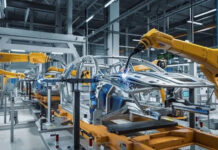Fires have historically been a scary concept, and even with today’s technology and understanding of how to contain it, flames are never a good thing in the city or on a farm. Farm machinery is too expensive to allow it to be destroyed after careless conditions cause a fire, even worse can be the loss of crops after a fire. Insurance might cover the loss, unfortunately, it doesn’t always, especially if the fire was determined to be caused by preventable carelessness. Even if insurance does cover the financial loss, it’s still not what anybody wants. Farmers take pride in their work and want to plant, maintain, and harvest their crops before sending them to market to sell for a fair price.
With that said, fires do happen. There are a few tips available to help prevent the likelihood of such a disaster. Many of these suggestions seem like common sense, but are overlooked by some people during the intense and rigorous daily work involved with raising crops. Ignoring proper fire safety precautions might seem to be needed “just this once” to increase the amount of actual work which can be performed that day, until you realize it only takes “once” for a fire to start and be devastating for the rest of the season. There are a few things which simply have to be scheduled into every day’s workload.
Tips:
- The number one tip and most important means of preventing a fire is to keep machinery in good working order. Poor equipment maintenance is one of the most common causes of fire. When parts are old or haven’t been properly lubricated, they cause friction which can easily produce heat well beyond the ignition point for flame. Add an oil leak and the flammable materials being harvested, there’s a recipe for disaster.
- Remember, machinery can be replaced, human life and health can’t. Train drivers to immediately turn into the wind and continue driving to blow flame, heat, and smoke away from the cab. Although unlikely, this strategy also gives the wind a chance to blow the fire out while suppression efforts are in place, or at least keep the fire contained to the rear section of the tractor which might be able to be repaired or replaced later for less expense than having the tractor be a total loss from fire damage.
- Although there are recognized health issues with smoking, and it isn’t the best option for anyone, on the ground it’s known that there are going to be smokers among a team of farm workers. Pick your battles. Even if you don’t like it, let your employees smoke while making it clear there are inappropriate times and places. If they don’t have to hide it, they don’t have to try to get in a quick cigarette while fueling, or behind a building where flammable materials are stored.
- Although downtime is never good, it might be called for at times. If you smell something burning, it means something is burning even if you can’t determine where the smell is coming from. It’s better to stop and inspect the machine than continue and risk a fire.
- Likewise, if you know there’s a problem with your equipment which might be a fire hazard, don’t continue running the equipment in the hopes of getting “one more day” or even a few hours of extra work out of it. If an aspect of the machine isn’t working properly, the extra time using it isn’t going to be very productive anyway. Just take the time needed to repair it so when you get back to work you can be efficient as possible without the risk of causing even more downtime because of further damage a fire might cause.
- Make sure the machine is cleaned daily, or more often as needed. Such cleaning includes the engine, whichever accessories are being used that day, the basket which might have buildup from the previous day’s work, and even the cabin area with any trash the operator or filed workers may have left behind.
- Keep the fields clean as well. A cotton picker especially but any harvester in general is designed to do the job it was intended to perform. It wasn’t meant to handle garbage such as lunch bags or clothing removed as the day warms up. Such items can and will clog the machinery, causing friction and clogging which not only interrupts the harvest but can cause an equipment jam which leads to excess friction and heat.
- This isn’t always available for all equipment, but many tractors have an optional fire suppression system as an accessory designed specifically for how a fire is likely to start. In some situations, it’s required for insurance purposes, in other cases it might pay for itself through insurance discounts. Either way, it’s a good idea as the price of the accessory is going to be well worth the expense should a fire ever break out.
- This tip doesn’t address fire prevention as much as how to deal with a fire once it starts, but always have extinguishers available and make sure they are in good working order. Although it won’t prevent a fire, an extinguisher will prevent the spread of the fire and keep the damage to a minimum.
Do You Need Replacement Parts for Your Cotton Pickers? Contact Certi-Pik Today for Quality Aftermarket Parts
At Certi-Pik, we specialize in parts, equipment, and accessories for cotton picking equipment. We’re an authorized parts dealer for John Deere and Case IH aftermarket replacement parts, many of which fit other brands as well. You’ll find our representatives to be knowledgeable to your tractor make and model and understanding of your need to get back up and running as soon as possible. Give us a call or send us an email when you need new parts. We’ll be happy to discuss your needs, offer advice as to what will best suit your circumstances, and get the parts to you so you can keep your equipment in tip-top shape.


















